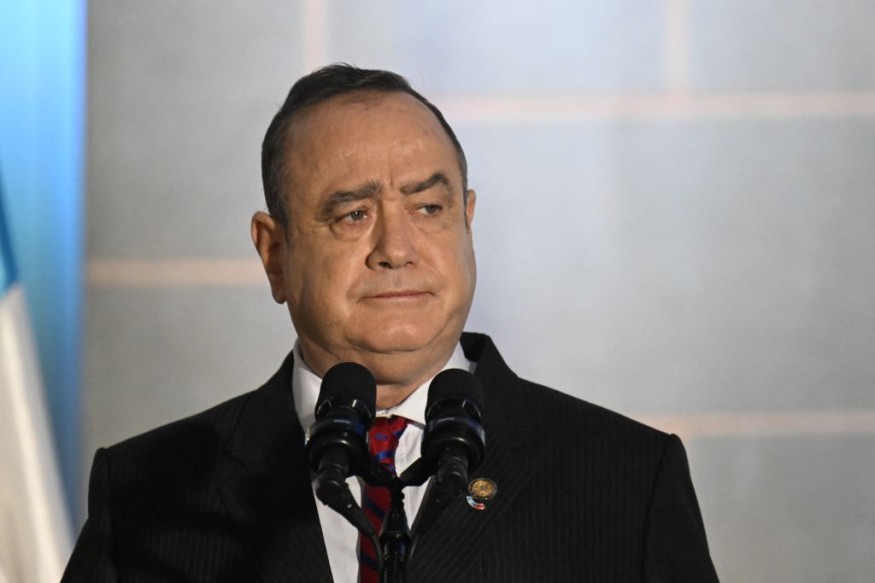Guatemala: Outgoing President Alejandro Giammattei Promises Transparent Transition Following Election

Outgoing Guatemala president Alejandro Giammattei has declared his commitment to overseeing a smooth and transparent transition of power to Bernardo Arevalo, who emerged victorious in the 2023 presidential race, per Al Jazeera.
However, this announcement arrives amid allegations that certain figures within Giammattei's administration are actively working to undermine Arevalo's political party and cast doubt on his electoral win.
Giammattei released a video on social media on Tuesday, addressing the election outcomes and assuring that he will meet with Arevalo on September 4.
This meeting is scheduled before Arevalo's official inauguration as president in January.
"The doors are now open towards an orderly, transparent, and, above all, efficient government transition," Giammattei stated in a video.
Yet, the timing of this video is notable as it follows shortly after Guatemala's electoral registry suspended the party of President-elect Arevalo, known as the Movimiento Semilla or Seed Movement.
This development is the latest twist in an election marked by controversy and challenges.
READ NEXT : Guatemala Elections: Bernardo Arevalo Wins
Incoming Guatemala President Bernardo Arevalo's Party's Suspension
In the lead-up to the official certification of Bernardo Arevalo as the victor of Guatemala's recent presidential election by the Supreme Electoral Tribunal on Monday, another governmental entity, the electoral registry, suspended the activities of Arevalo's political party.
The Seed Movement, Arevalo's party, promptly requested the electoral authority to lift this suspension, AP reports.
Arevalo denounced this suspension as illegal during a press conference, asserting that the certified election outcome now grants him the right to assume office on January 14.
Both Arevalo and his party have encountered a series of legal challenges, allegations of irregularities, and even assassination plots, as observed by international monitors.
President Giammattei, in a concise message to Guatemalans on Tuesday, expressed satisfaction with his administration's efforts in maintaining a peaceful electoral process.
Despite conservative former first lady Sandra Torres' accusations of voter fraud, Giammattei affirmed that there were no "significant" incidents during the voting.
However, the suspension has raised doubts regarding whether Seed Movement lawmakers can take their allocated 23 seats in Congress.
This situation highlights the challenges confronting Arevalo, who campaigned on progressive and anti-corruption principles.
The Seed Movement's plea for the suspension's nullification rests on a June ruling by Guatemala's constitutional court, which dictates that no political entity can be suspended during an electoral period.
The determination of the party's status lies with the Supreme Electoral Tribunal.
Tiziano Breda, an expert on Central America at Italy's Instituto Affari Internazionali, noted that the situation enters unprecedented legal territory.
Nevertheless, he emphasized the formidable nature of Arevalo's victory, suggesting that the potential risks of causing international concern or unrest may dissuade attempts to overturn the election result.
Breda also anticipates ongoing efforts by Arevalo's opponents to create obstacles for his administration, aiming to hinder his governance as much as possible.
Bernardo Arevalo
Bernardo Arevalo, 64, exudes an air of impeccable composure and soft-spoken demeanor.
In contrast to bombastic rhetoric, his unassuming nature and the minimalist framework of his party have kept him largely out of the limelight, according to The Nation.
The Seed Movement distinguished itself by refusing the bribes and gratuities that often prop up Guatemala's major political factions.
This stance allowed him to remain inconspicuous and facilitated the accumulation of support.
The platform put forth by the Seed Movement is marked by a resolute practicality.
Proposals center on pragmatic steps, including the dissolution of monopolies to reduce the costs of essential commodities like electricity and food, integration of workers into the formal economy to curb the escalating trend of emigration to the United States, and comprehensive reform of government institutions through a meticulous ten-step strategy.
Throughout his campaign, Arevalo consistently emphasized his commitment to the latter objective.
While his language retained an element of vagueness ("collectively, as a united populace, we shall combat corruption"), his candid approach and untarnished history contributed to an invaluable descriptor: the "anti-corruption" candidate.
This article is owned by Latin Post.
Written by: Bert Hoover
WATCH: Guatemala's anti-corruption candidate Bernardo Arevalo wins presidential election - From FRANCE 24 English
Subscribe to Latin Post!
Sign up for our free newsletter for the Latest coverage!

















